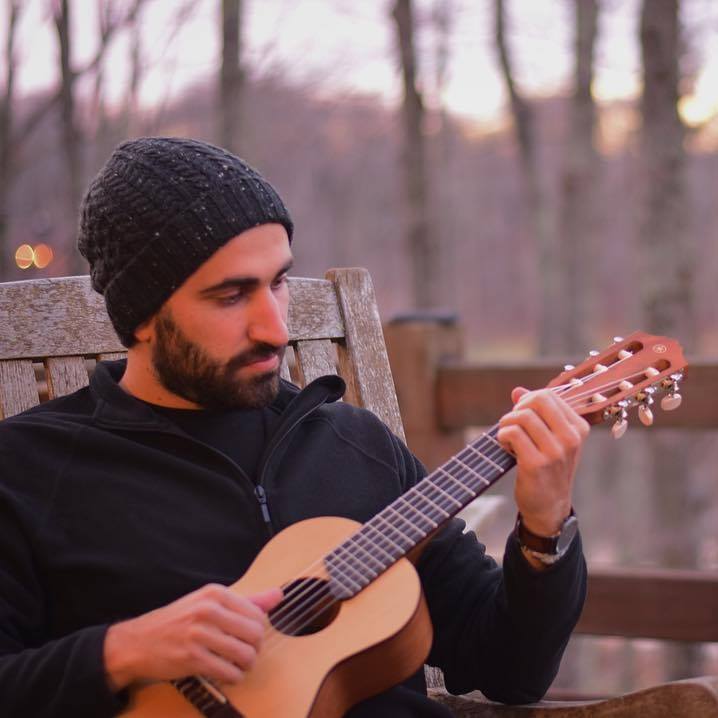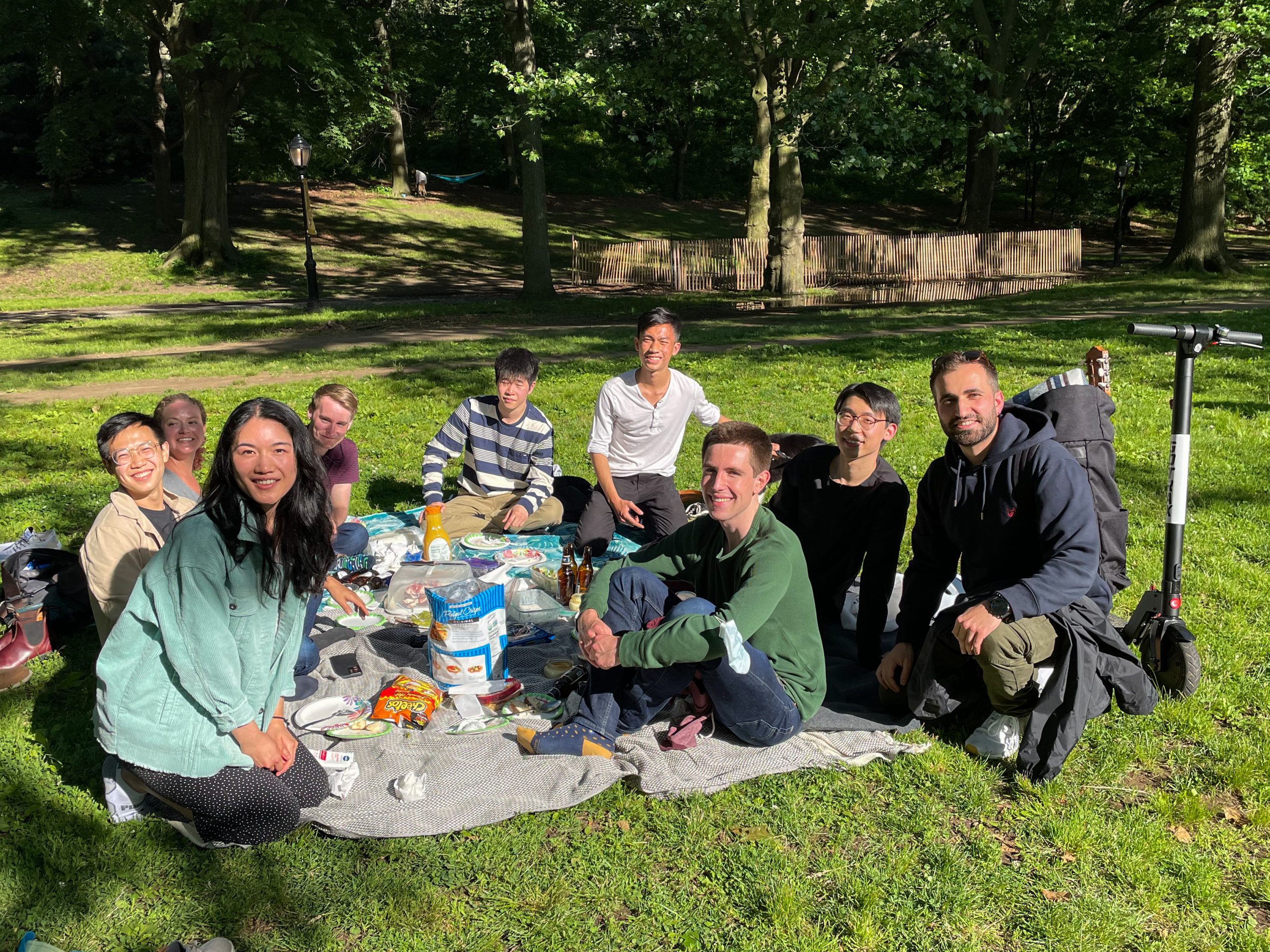Tag: student
Voices of CS: Giannis Karamanolakis
Giannis Karamanolakis, a natural language processing and machine learning PhD student, talks about his research projects and how he is developing machine learning techniques for natural language processing applications.

Can you talk about your background and why you decided to pursue a PhD?
I used to live in Greece and grew up in Sitia, a small town in Crete. In 2011, I left my hometown to study electrical and computer engineering at the National Technical University of Athens (NTUA).
At NTUA, taking part in machine learning (ML) research was not planned but rather a spontaneous outcome stemming from my love for music. The initial goal for my undergraduate thesis was to build an automatic music transcription system that converts polyphonic raw audio into music sheets. However, after realizing that such a system would not be possible to develop in a limited amount of time, I worked on the simpler task of automatically tagging audio clips with descriptive tags (e.g., “car horn” for audio clips where a car horn is sound). Right after submitting a new algorithm as a conference paper, I realized that I love doing ML research.
After NTUA, I spent one and a half years working as an ML engineer at a startup called Behavioral Signals, where we trained statistical models for the recognition of core emotions from speech and text data. After a few months of ML engineering, I found myself spending more time reading research papers and evaluating new research ideas on ML and natural language processing (NLP). By then, I was confident about my decision to pursue a PhD in ML/NLP.
What about NLP did you like and when did you realize that you wanted to do research on it?
I am fascinated by the ability of humans to understand complex natural language. At the moment of writing this response, I submitted the following 10-word query to Google: “when did you realize that you wanted to do research” by keeping quotation marks so that Google looks for exact matches only. Can you guess the number of the documents returned by Google that contain this exact sequence of 10 words?
The answer that I got was 0 (zero) documents, no results! In other words, Google, a company with huge collections of documents, did not detect any document that contains this specific sequence of words. Sentences rarely recur but humans easily understand the semantics of such rare sentences.
I decided to do research on NLP when I realized that current NLP algorithms are far away from human-level language understanding. As an example back from my time at Behavioral Signals, emotion classifiers were misclassifying sentences that contained sarcasm, negation, and other complex linguistic phenomena. I could not directly fix those issues (which are prevalent beyond emotion classification), which initially felt both surprising and frustrating, but then evolved into my excitement for research on NLP.
Why did you apply to Columbia and how was that process?
The computer science department at Columbia was one of my top choices for several reasons, but I will discuss the first one.
I was excited to learn about the joint collaboration between Columbia University and the New York City Department of Health and Mental Hygiene (DOHMH), on a project that aims to understand user-generated textual content in social media (e.g., Yelp reviews, tweets) for critical public health applications, such as detecting and acting on foodborne illness outbreaks in restaurants. I could see that the project would offer the unique opportunity to do research in ML and NLP and at the same time contribute to this important public application in collaboration with epidemiologists at DOHMH. Fortunately, I have been able to work on the project, advised by Professor Luis Gravano and Associate Professor Daniel Hsu.
Applying to Columbia and other American universities was quite a stressful experience. For many months, my days were filled with working for Behavioral Signals, studying hard for high scores in GRE and TOEFL exams (both of which were required at that time by all US universities), creating a short CV for the first time, and writing a distinct statement-of-purpose for each university. I am glad to observe the recent promising changes in the PhD application procedure for our department, such as waiving the GRE requirements and offering the Pre-submission Application Review (PAR) program, in which current PhD students help applicants improve their applications. (Both of which I would have liked to have been able to take advantage of.)
What sort of research questions or issues do you hope to answer?
My research in the past few years focuses on the following question: Can we effectively train ML classifiers for NLP applications with limited training data using alternative forms of human supervision?
An important limitation of current “supervised ML” techniques is that they require large amounts of training data, which is expensive and time-consuming to obtain manually. Thus, while supervised ML techniques (especially deep neural networks) thrive in standard benchmarks, it would be too expensive to apply to emerging real-world applications with limited labeled data.
Our work attempts to address the expensive requirement of manually labeled data through novel frameworks that leverage alternative, less expensive forms of human supervision. In sentiment classification, for example, we allow domain experts to provide a small set of domain-specific rules (e.g., “happy” keyword indicates positive sentiment, “diarrhea” is a symptom of food poisoning). Under low-resource settings with no labeled data, can we leverage expert-defined rules as supervision for training state-of-the-art neural networks?
For your research papers, how did you decide to do research on those topics? How long did it take you to complete the work? Was it easy?
For my first research project at Columbia, my goal was to help epidemiologists in health departments with daily inspections of restaurant reviews that discuss food poisoning events. Restaurant reviews can be quite long, with many irrelevant sentences surrounding the truly important ones that discuss food poisoning or relevant symptoms. Thus, we developed a neural network that highlights only important sentences in potentially long reviews and deployed it for inspections in health departments, where epidemiologists could quickly focus on the relevant sentences and safely ignore the rest.
The goal behind my next research projects was to develop frameworks for addressing a broader range of text-mining tasks, such as sentiment analysis and news document classification, and for supporting multiple languages without expensive labeled data for each language. To address this goal, we initially proposed a framework for leveraging just a few domain-specific keywords as supervision for aspect detection and later extended our framework for training classifiers across 18 languages using minimal resources.
Each project took about 6 months to complete. None of them were easy; each required substantial effort in reading relevant papers, discussing potential solutions with my advisors, implementing executable code, evaluating hypotheses on real data, and repeating the same process until we were all satisfied with the solutions and evaluation results. The projects also involved meeting with epidemiologists at DOHMH, re-designing our system to satisfy several (strict) data transfer protocols imposed by health departments, and overcoming several issues related to missing data for training ML classifiers.
Your advisors are not part of the NLP group, how has that worked out for you and your projects?
It has worked great in my humble opinion. For the public health project, the expertise of Professor Gravano on information extraction, combined with the expertise of Professor Hsu on machine learning, and the technical needs of the project have contributed without any doubt to the current formulation of our NLP-related frameworks. My advisors’ feedback covers a broad spectrum of research, ranging from core technical challenges to more general research practices, such as problem formulation and paper writing.
Among others, I appreciate the freedom I have been given for exploring new interesting research questions as well as the frequent and insightful feedback that helps me to reframe questions and forming solutions. At the same time, discussions with members of the NLP group, including professors and students, have been invaluable and have clearly influenced our projects.
What do you think is the most interesting thing about doing research?
I think it is the high amount of surprise it encompasses. For many research problems that I have tried to tackle, I started by shaping an initial solution in my mind but in the process discovered surprising findings that undoubtedly changed my way of thinking – such as that my initial solution did not actually work, simpler approaches worked better than more sophisticated approaches, data followed unexpected patterns, etc. These instances of surprise turned research into an interesting experience, similar to solving riddles or listening to jazz music.
Please talk about your internships – the work you did, how was it, what did you learn?
In the summer of 2019, I worked at Amazon’s headquarters in Seattle with a team of more than 15 scientists and engineers. Our goal was to automatically extract and store knowledge about billions of products in a product knowledge graph. As part of my internship, we developed TXtract, a deep neural network that efficiently extracts information from product descriptions for thousands of product categories. TXtract has been a core component of Amazon’s AutoKnow, which provides the collected knowledge for Amazon search and product detail pages.
During the summer of 2020, I worked for Microsoft Research remotely from New York City (because of the pandemic). In collaboration with researchers at the Language and Information Technologies team, we developed a weak supervision framework that enables domain experts to express their knowledge in the form of rules and further integrates rules for training deep neural networks.
These two internships equipped me with invaluable experiences. I learned new coding tools, ML techniques, and research practices. Through the collaboration with different teams, I realized that even researchers who work on the same subfield may think in incredibly different ways, so to carry out a successful collaboration within a limited time, one needs to listen carefully, pre-define expected outcomes (with everyone in the team), and adapt fast.
Do you think your skills were improved by your time at Columbia? In which ways?
Besides having improved my problem-finding and -solving skills, I have expanded my presentation capabilities. In the beginning, I was frustrated when other people (even experienced researchers) could not follow my presentations and I was worried when I could not follow other presenters’ work. Later, I realized that if (at least part of) the audience is not able to follow a presentation, then the presentation is either flawed or has been designed for the wrong audience.
Over the past four years, I have presented my work at various academic conferences and workshops, symposiums at companies, and student seminars, and after having received constructive feedback from other researchers, I can say that my presentation skills have vastly improved. Without any doubt, I feel more confident and can explain my work to a broader type of audience with diverse expertise. That said, I’m still struggling to explain my PhD topic to my family. 🙂

What has been the highlight of your time at Columbia?
The first thing that comes to mind is the “Greek Happy Hour” that I co-organized in October 2019. More than 40 PhD students joined the happy hour, listened to Greek music (mostly “rempetika”), tasted greek specialties (including spanakopita), and all toasted loudly by saying “Γειά μας” (ya mas; the greek version of “cheers”).
Was there anything that was tough to handle while taking your PhD?

It is hard to work from home during a pandemic. A core part of my PhD used to involve multi-person collaborations, drawing illustrations on the whiteboards of the Data Science Institute, random chats in hallways, happy hours, and other social events. All these have been harder or impossible to retain during the pandemic. I miss it and look forward to enjoying it again soon.
Looking back, what would you have done differently?
If I could, I would have engaged in more discussions and collaborations, taken more classes, played more music, and slept less. 🙂
What is your advice to students on how to navigate their time at Columbia? If they want to do NLP research what should they know or do to prepare?
They should register for diverse courses; Columbia offers the opportunity to attend courses from multiple departments. They should reach out to as many people as possible and do not hesitate to email graduate students and professors. I love receiving emails from people that I haven’t met before, some of which stimulated creative collaborations.
For those that want to do NLP research (which I highly recommend–subjectively speaking), you should contact me or any person in the NLP group.
What are your plans after Columbia?
I plan to continue working on research, either as a faculty member or in an industry research and development department.
Is there anything else that you think people should know?
Columbia offers free and discounted tickets to museums and performances around New York City, even virtual art events. I personally consider New York as the “state-of-the-art”.

